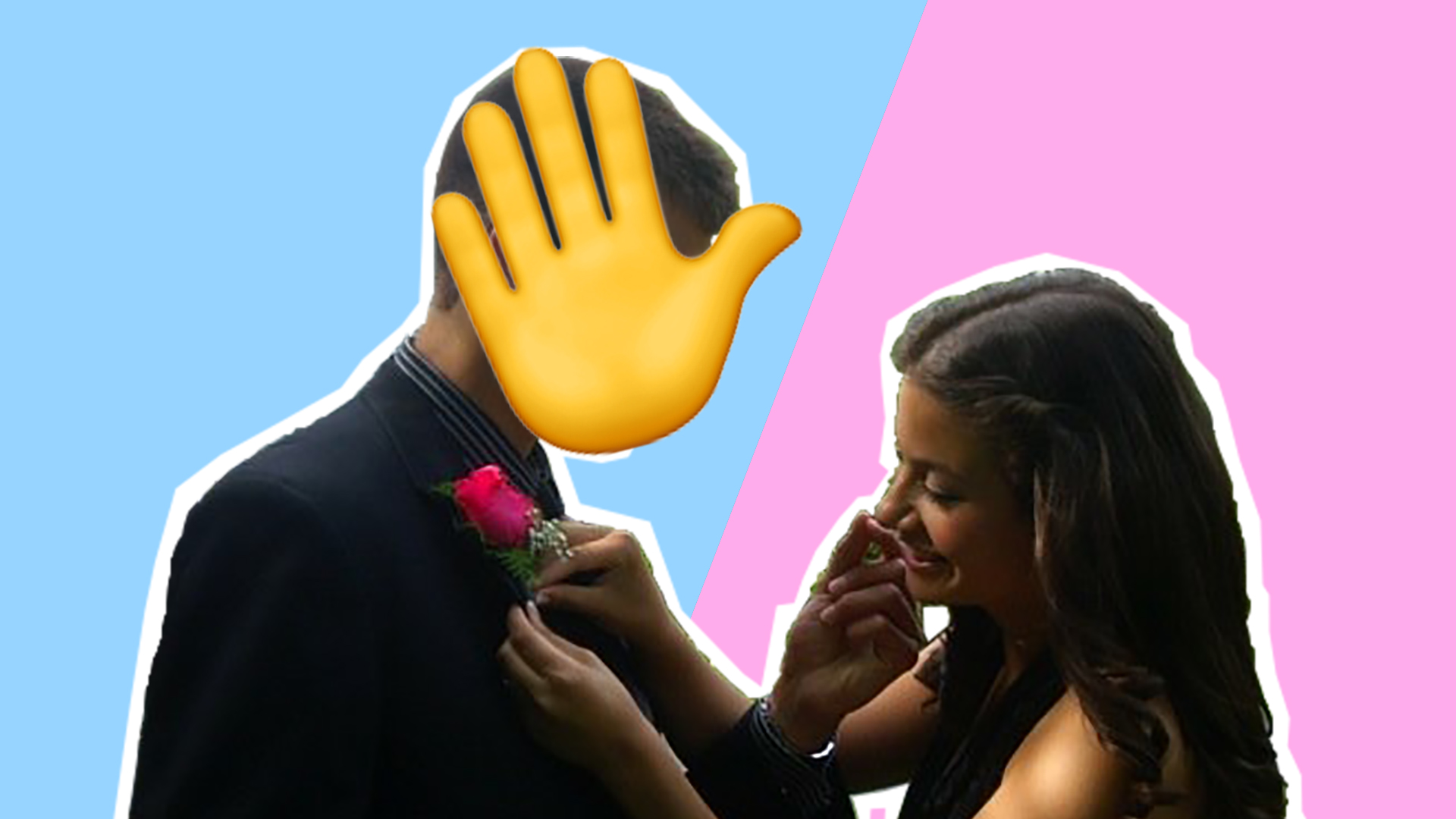My first heartbreak was in 2009 when my high school boyfriend went to college. He was two years older than I was, and our break-up was the type that wasn’t really a break up at all. It more resembled a game of tug-of-war, where I was often the loser, hands burned and face down in the mud. Our break-up plan was simple: We’d speak all the time and visit each other and say “I love you”, but we’d be free to see other people and for him, this meant that he’d be able to “truly experience college” sans the girlfriend-at-home guilt and thus, preserve our chances for a future. Simple, right?
Obviously, this break-up plan was a failure. Looking back, there’s one photo from a Facebook Halloween album that, to me, marks the moment where our relationship really started to decline. The photo itself was harmless—they were just posing next to each other smiling—and he was dressed as Mr. Incredible; she was a bunch of green grapes. But I knew. Deep in my gut, I knew the photo wasn’t harmless, that this wasn’t just a friend. Here’s the thing about images: You can’t unsee them. And in the moments and days and weeks that followed, my emotions were constantly in flux as I grappled with everything from shock and confusion to disorienting grief that lasted for twelve months too long.
Ultimately, I “defriended” my ex on Facebook. And when I did, the photos that I feared had taken permanent residence in my head began to fade. Naturally, when my friends went through break ups throughout college, my advice was a reflection of my personal experience.
“Unfollow them,” I’d say.
“That’s so immature,” they’d respond.
Or, an ex would unfollow them and they’d be hurt, coming to me with remarks like, “Can you believe they did that?” I’d respond with a rant of sorts, urging them to be understanding of their ex’s process, and reminding them that everyone moves on in different ways.
Years later, I still feel strongly that unfollowing your ex is appropriate, if not essential. Am I the only one who feels this way? I was curious, so I asked some friends (some personal, and some from our incredible Thrive Global community): Would you unfollow an ex?
At first, I was pleased to see that some folks agreed with my cold turkey approach.
“Immediately. I want nothing to do with the memories and would like to move forward without the constant reminder of what was or what could have been,” Stephany F. shared. “Don’t look back, it distracts from the now.”
“Yes. Mostly for my own sanity. I have used social media channels as a way to torture myself after breaking up with someone. I will end up falling down a rabbit hole of digital searching to try and piece together what went wrong, even if I’m the one who ended it,” shared Alexis. “On the other hand, if the split was mostly amicable—or if the raw emotion has passed—I am happy to keep in touch or support their progress. Blocking for the sake of denying access can be petty… unless of course the person is toxic or dangerous.”
That got me thinking that maybe there is a difference between unfollowing after a happy breakup, and an unhappy one, like mine. “For me, it depends on the ex. If we had a clean break, and it didn’t hurt to see their face plastered all over social, I continue to follow,” says Kara. “Breaking up doesn’t mean I stop valuing their thoughts on Twitter, or don’t want to see them doing well on Facebook or Instagram.”
So what do experts say is best for your emotional well-being? I spoke with Dr. Leora Trub, a Professor at Pace University whose research investigates the intersection between psychology and 21st century technologies, about social media’s role in the break-up process.
“One risk [of continuing to follow an ex] is prolonging the process of mourning that follows the loss of an important relationship,” Dr. Trub says. Research places loss into two specific categories: definitive and ambiguous. The latter happens when a loved one is terminally sick – they’re there but they’re already gone, and you grapple with the loss in what feels like slow-motion. “The ideal break up would allow for a definitive moment where you can grieve the end. And usually, it helps when that moment involves no longer seeing that person or being in contact with them,” Dr. Trub says.
And yet, if we know that creating space between ourselves and our exes ultimately encourages our growth, why are we so hesitant to make the move? Most likely, it’s because unfollowing someone is typically viewed as an act of aggression, rather than an act of self-preservation. You can take away that stigma by talking about it ahead of time. “It would be great if couples would talk about these things, either in the theoretical sense when they’re together, like, ‘What should people do on social media if they break up?’ or actually having the conversation when they’re breaking up,” Dr. Trub suggests.
Obviously, having that conversation isn’t easy, but it makes perfect sense. It’s not that there’s one right answer to unfollowing an ex—what’s best for your emotional well-being is always individual. But in the best case, you’ll have that what do we do about social media conversation with your partner now, before you ever get to the point of a break-up. Talking openly about how you’ll handle social, especially in today’s technological zeitgeist, is imperative.
More on break-ups here:


